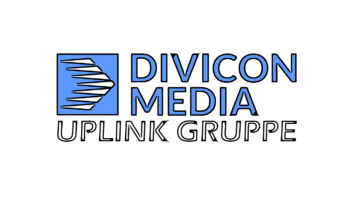WASHINGTON — The process of bringing a station to life is a complicated venture. Take the case of a construction permit for an FM station in Aguila, Ariz., which bounced through a bankruptcy case, a handful of objections, challenges over tower height and a fence, and whether the spot is really just a makeshift location.
That’s what’s happening with KAZV(FM). Matinee Media acquired the KAZV construction permit from Able Radio Corp., which was the 2011 winning bidder for a new commercial FM station in Aguila, Ariz. It filed for bankruptcy in 2015. After acquisition, Matinee submitted a license to cover for the station in December 2017.
At the same time that the permit was awarded to Able in 2011, the Media Bureau simultaneously dismissed two competing modification applications by Entravision Holdings for stations KVVA(FM) and KDVA(FM). Entravision had repeatedly challenged the grant of the KAZV CP through informal objection, petition for reconsideration and application for review by arguing that Able had failed to obtain reasonable assurance of site availability at its original site.
In April 2014, the bureau had its final say on the matter when it denied Entravision’s final application for review.Now as the new assignee, Matinee specified it would build a 150-foot tower (instead of the proposed 365-foot tower) under a temporary use permit handed out by Maricopa County so that the tower could be built before the construction permit expired; a special use permit was on its way, the licensee said. On Dec. 26, 2017, the day the construction permit expired, Matinee filed its license application with the FCC.A day later, Entravision responded by filing new modification applications and contending that the KAZV facilities are impermissibly temporary, saying that the KAZV license application was filed at the last minute and that the temporary use permit it is using does not provide permanent authority to operate the broadcast facility.
Entravision also argued that Matinee failed to file a post-license application ownership report, failed to construct a main studio, and failed to conduct RF field strength measurements and protective fencing. Because of these defects, Entravision argues that the KAZV application should be dismissed as a “mere placeholder.”
Matinee responded by saying it did take appropriate RF field strength measurements, that a fence was not needed, and that requesting a main studio was unnecessary because the commission had already adopted an order eliminating the main studio rule. The licensee also urged the commission to distinguish between reasonable assurance of site availability issues and local zoning and permitting issues — an area “best left to the appropriate local governmental authorities with the expertise and jurisdiction over same,” Matinee said.
The Media Bureau responded to Entravision’s objections with a reminder that the Communications Act of 1934 imposes a stringent standard on challenges to license applications.“So long as all the terms, conditions, and obligations set forth in the application and permit have been fully met, Matinee is entitled, as an applicant for a license to cover a construction permit, to a high degree of protection …” the bureau said.
Traditionally, the commission is reluctant to designate license applications for hearing, the bureau said. So too in this case — the FCC found that Entravision failed to demonstrate that Matinee failed to meet the terms of its permit or that grant of the KAZV license application would be inconsistent with the public interest.
However Entravision raised an important point: that some licensees have abused the system by erecting makeshift facilities when faced with the imminent expiration of a construction permit. As a result, FCC Rules do clarify that an applicant may not rely on temporarily constructed facilities to satisfy construction requirements.That’s not what is happening here, however, the bureau said.
After delays due to leasing, environmental review, tower registration and FAA compliance issues, Matinee encountered a local zoning issue regarding tower height that could not be resolved in time. Matinee amended its application and received the green light to construct alternative facilities (the smaller 150-foot tower versus an originally proposed 365-foot guyed tower). Matinee plans to increase its tower height through a future modification application if circumstances permit it to do so, the licensee said.
As a result, the bureau concluded that the Entravision has not demonstrated that the KAZV facilities are or were impermissibly temporary.
The bureau also clarified that it would leave enforcement actions concerning any alleged violations of local ordinances to the appropriate local authorities, that Matinee’s delay in filing an ownership report does not rise to the level of enforcement action and said Matinee was in the right regarding the soon-to-be-obsolete main studio rule.
As a result, the commission denied the informal objection field by Entravision and granted Matinee its license.











